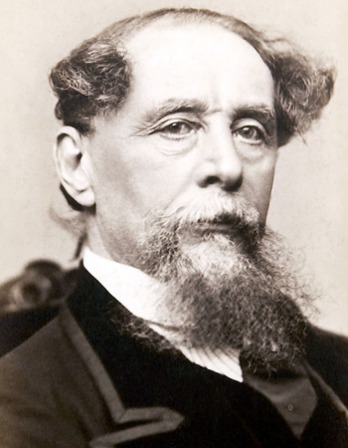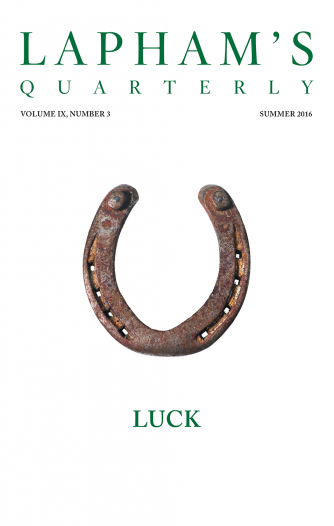Socrates
Doesn’t it seem shameful to you to need medical help, not for wounds or because of some seasonal illness but because, through idleness and the lifestyle we’ve described, one is full of gas and phlegm like a stagnant swamp, so that sophisticated Asclepiad doctors are forced to come up with names like “flatulence” and “catarrh” to describe one’s diseases?
Glaucon
It does. And those certainly are strange new names for diseases.
Socrates
Indeed, I don’t suppose that they even existed in the time of Asclepius himself. I take it as a proof of this that his sons at Troy didn’t criticize either the woman who treated Eurypylus when he was wounded or Patroclus who prescribed the treatment, which consisted of Pramnian wine with barley meal and grated cheese sprinkled on it, though such treatment is now thought to cause inflammation.
Glaucon
Yet it’s a strange drink to give someone in that condition.
Socrates
Not if you recall that they say that the kind of modern medicine that plays nursemaid to the disease wasn’t used by the Asclepiads before Herodicus. He was a physical trainer who became ill, so he mixed physical training with medicine and wore out first himself and then many others as well.
Glaucon
How did he do that?
Socrates
By making his dying a lengthy process. Always tending his mortal illness, he was nonetheless, it seems, unable to cure it, so he lived out his life under medical treatment with no leisure for anything else whatever. If he departed even a little from his accustomed regimen, he became completely worn out, but because his skill made dying difficult, he lived into old age.
Glaucon
That’s a fine prize for his skill.
Socrates
One that’s appropriate for someone who didn’t know that it wasn’t because he was ignorant or inexperienced that Asclepius failed to teach this type of medicine to his sons, but because he knew that everyone in a well-regulated city has his own work to do and that no one has the leisure to be ill and under treatment all his life. It’s absurd that we recognize this to be true of craftsmen while failing to recognize that it’s equally true of those who are wealthy and supposedly happy.
Glaucon
How is that?
Socrates
When a carpenter is ill, he expects to receive an emetic or a purge from his doctor or to get rid of his disease through surgery or cautery. If anyone prescribed a lengthy regimen to him, telling him that he should rest with his head bandaged and so on, he’d soon reply that he had no leisure to be ill and that life is no use to him if he has to neglect his work and always be concerned with his illness. After that he’d bid goodbye to his doctor, resume his usual way of life, and either recover his health or, if his body couldn’t withstand the illness, he’d die and escape his troubles.
Glaucon
It is believed to be appropriate for someone like that to use medicine in this way.
Socrates
Is that because his life is of no profit to him if he doesn’t do his work?
Glaucon
Obviously.
Socrates
But the rich person, we say, has no work that would make his life unlivable if he couldn’t do it.
Glaucon
That’s what people say, at least.
Socrates
That’s because you haven’t heard the saying of Phocylides, that once you have the means of life, you must practice virtue.
Glaucon
I think he must also practice virtue before that.
Socrates
We won’t quarrel with Phocylides about this. But let’s try to find out whether the rich person must indeed practice virtue and whether his life is not worth living if he doesn’t, or whether tending an illness—while it is an obstacle to applying oneself to carpentry and the other crafts—is no obstacle whatever to taking Phocylides’ advice.
Glaucon
But excessive care of the body, over and above physical training, is pretty well the biggest obstacle of all. It’s troublesome in managing a household, in military service, and even in a sedentary public office.
Socrates
Yet the most important of all, surely, is that it makes any kind of learning, thought, or private meditation difficult, for it’s always imagining some headaches or dizziness and accusing philosophy of causing them. Hence, wherever this kind of virtue is practiced and examined, excessive care of the body hinders it, for it makes a person think he’s ill and be all the time concerned about his body.
Glaucon
It probably does.
Socrates
Therefore, won’t we say that Asclepius knew this, and that he taught medicine for those whose bodies are healthy in their natures and habits but have some specific disease? His medicine is for these people with these habits. He cured them of their disease with drugs or surgery and then ordered them to live their usual life so as not to harm their city’s affairs. But for those whose bodies were riddled with disease, he didn’t attempt to prescribe a regimen, drawing off a little here and pouring in a little there in order to make their life a prolonged misery—and enable them to produce offspring in all probability like themselves. He didn’t think that he should treat someone who couldn’t live a normal life, since such a person would be of no profit either to himself or to the city.
Glaucon
That Asclepius was quite a statesman.
Socrates
Clearly. And don’t you see that because he was a statesman his sons turned out to be good men at Troy? Don’t you remember that they “sucked out the blood and applied gentle potions” to the wound Pandarus inflicted on Menelaus, but without prescribing what he should eat or drink after that, any more than they did for Eurypylus? They considered their drugs to be sufficient to cure men who were healthy and living an orderly life before being wounded, even if they happened to drink wine mixed with barley and cheese right after receiving their wounds. But they didn’t consider the lives of those who were by nature sick and licentious to be profitable either to themselves or to anyone else. Medicine isn’t intended for such people, and they shouldn’t be treated, not even if they’re richer than Midas.
From The Republic. An aristocrat born with the name Aristocles, the Greek philosopher became known by his nickname “Plato,” after the Greek word “platus,” meaning “broad.” It is thought this name was given to him in his youth, either in reference to his expansive forehead or robust build. Student of Socrates and teacher to Aristotle, Plato founded the Academy in Athens in 387 BC.
Back to Issue





